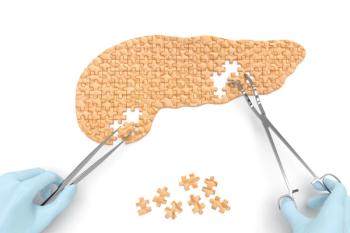
Oncology Drug Exkivity to be Voluntarily Withdrawn From US Market
Exkivity remains available while Takeda works with the FDA on withdrawal timing, and the company said that patients currently taking the therapy will continue to have access after it is withdrawn.
Takeda is voluntarily withdrawing Exkivity (mobocertinib) from the U.S. market because a phase 3 confirmatory study did not meet its primary endpoint.1 Exkivity was granted accelerated approval in September 2021 to treat adult patients with advanced or metastatic non-small cell lung cancer (NSCLC) with epidermal growth factor receptor (EGFR) exon 20 insertion mutations.
Exkivity remains available while Takeda works with the FDA on withdrawal timing, and the company said that patients currently taking the therapy will continue to have access after it is withdrawn.
Takeda also plans to initiate a similar withdrawal globally where Exkivity approved and is working with regulators in other countries where it is currently available on next steps.
The confirmatory study, EXCLAIM-2, was a phase 3 trial designed to assess the safety and efficacy of Exkivity as a monotherapy versus platinum-based chemotherapy in first-line treatment of NSCLC with EGFR Exon 20 insertions. Full data from the trial will be presented at an upcoming medical meeting or published in a peer-reviewed journal.
“Our steadfast commitment to pursue solutions for people with high unmet needs led us to develop and launch Exkivity as the first oral therapy designed for patients with EGFR Exon 20 insertion+ metastatic NSCLC,” Awny Farajallah, M.D., head of Global Medical Affairs Oncology at Takeda said in a press release. “We have been fortunate to witness the impact Exkivity has had on this previously underserved population and are encouraged to see the advancements made since its approval to introduce new therapies for these patients. We hope that findings from the EXCLAIM-2 study will inform future research and development for this disease.”
The accelerated approval of Exkivity in 2021 was based on results from a phase 1/2 trial in patients who had received prior platinum-based therapy. In this trial, Exkivity demonstrated an overall response rate of 28% with a median duration of response of 17.5 months and a median overall survival of 24 months. The most common adverse reactions were diarrhea, rash, nausea, vomiting, decreased appetite, fatigue, dry skin, and musculoskeletal pain.
Non-small cell lung cancer is the most common form of lung cancer, accounting for about 85% of the estimated 2.2 million new cases of lung cancer diagnosed each year worldwide, according to the World Health Organization. Patients with EGFR Exon 20 mutations make up about 1% to 2% of those with NSCLC, and the disease is more common in Asian populations compared with Western populations.
Reference
1. Takeda Provides Update on EXKIVITY® (mobocertinib). News Release. Takeda. October 2, 2023. Accessed October 3, 2023. https://www.takeda.com/newsroom/newsreleases/2023/Takeda-Provides-Update-on-EXKIVITY-mobocertinib/
Newsletter
Pharmacy practice is always changing. Stay ahead of the curve with the Drug Topics newsletter and get the latest drug information, industry trends, and patient care tips.

























